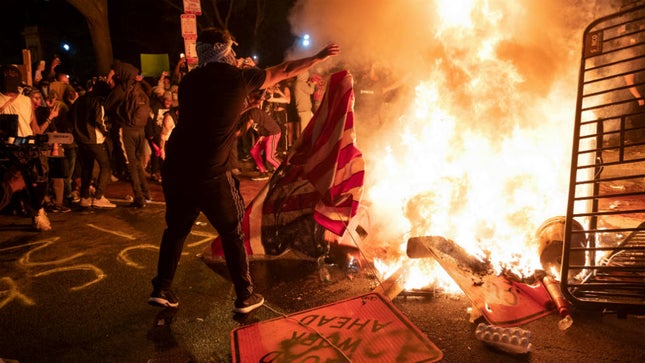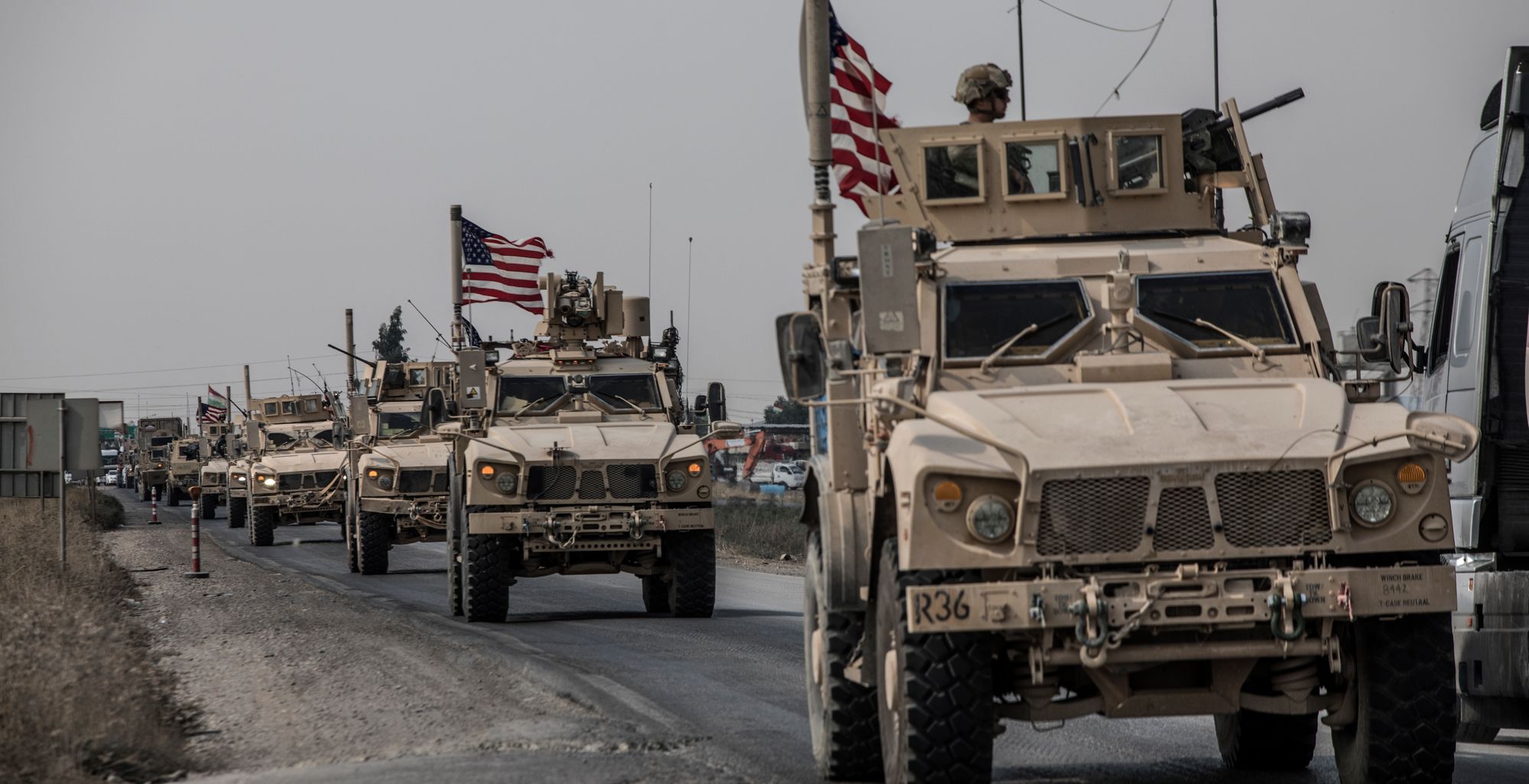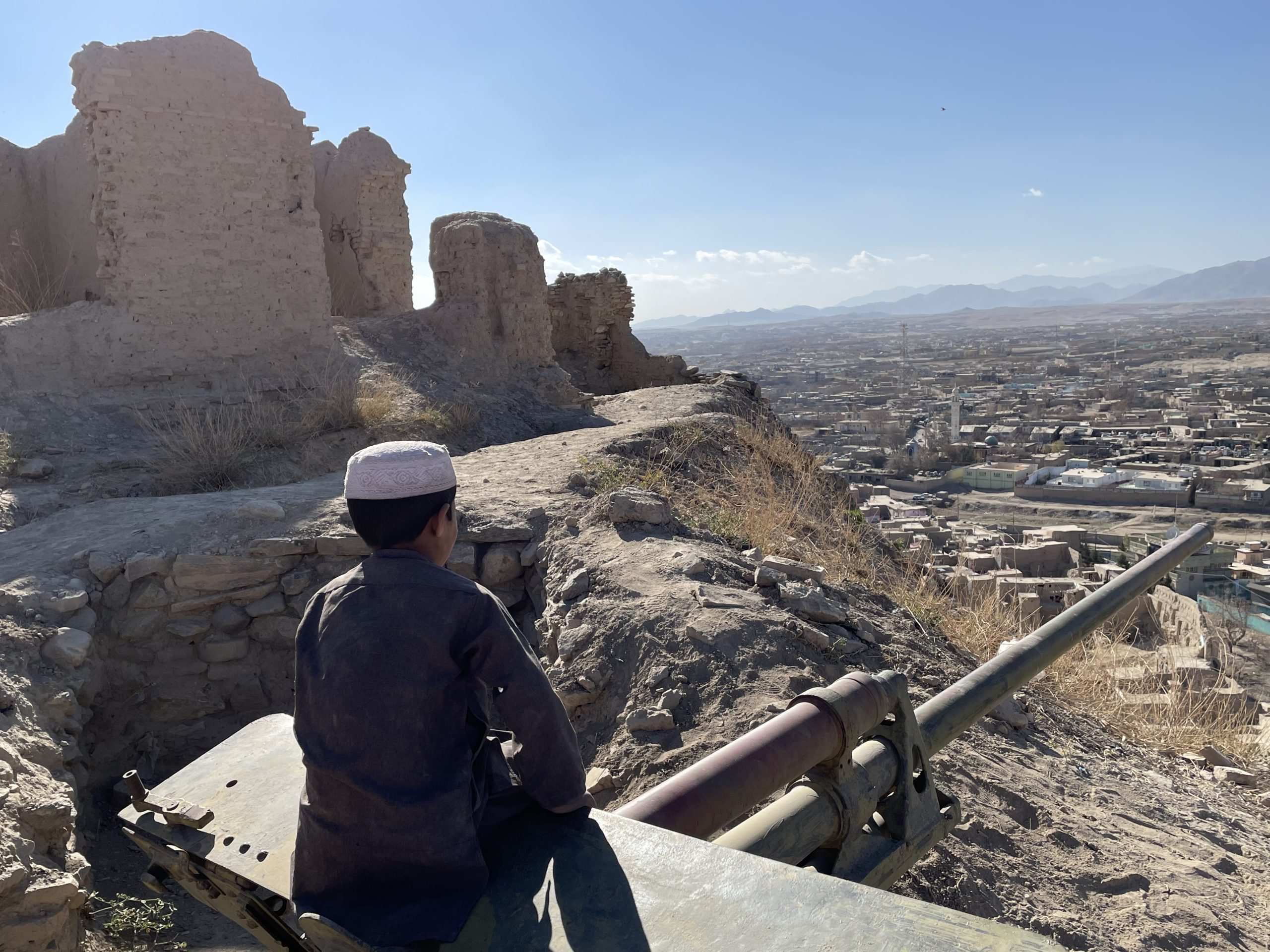The politics of nostalgia can’t meet the moment.
Seven Ruined Pillars
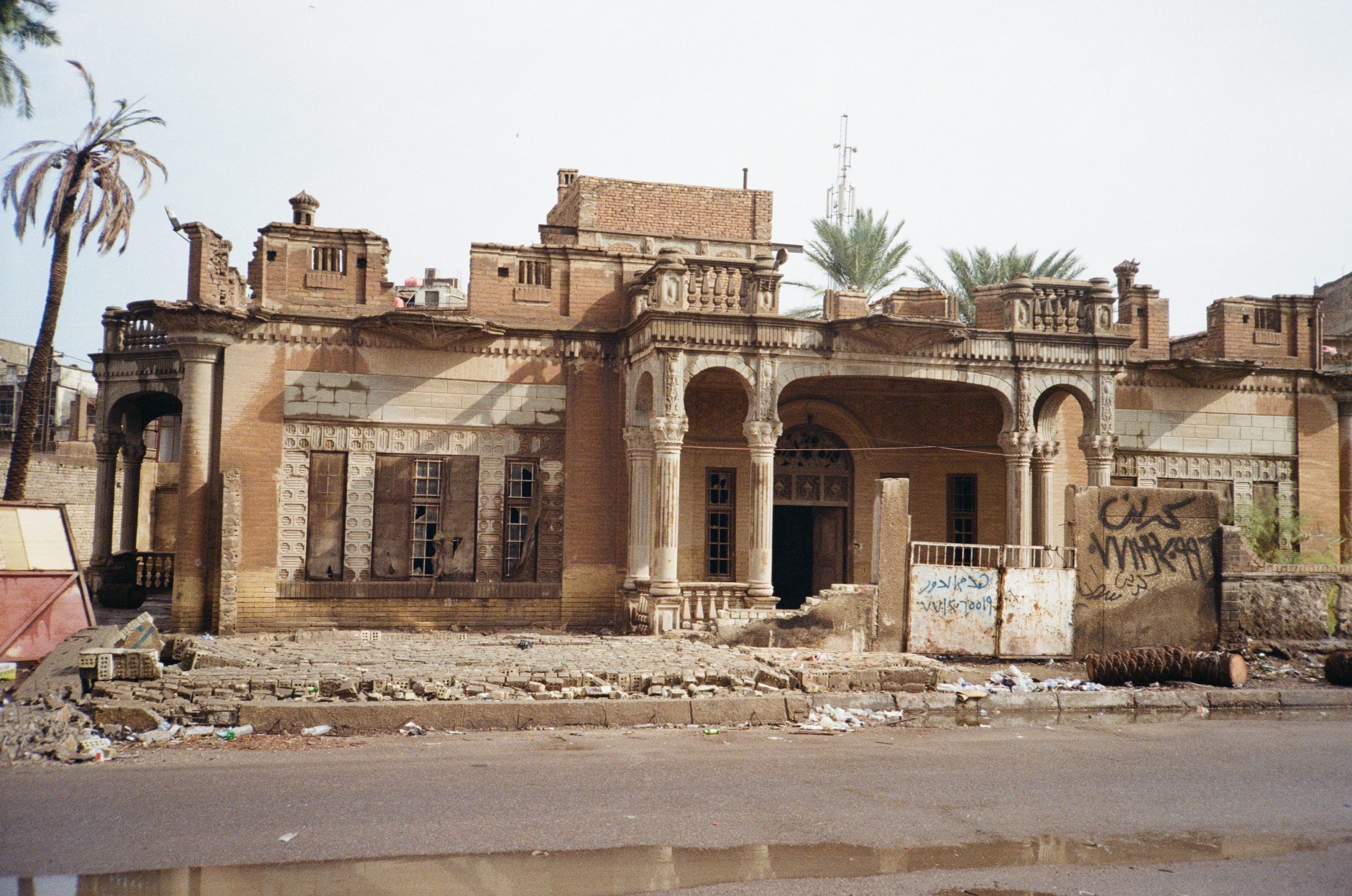
We created a wasteland, and called it progress.
This is the first in a two-part series detailing the author’s recent trip to Iraq.
The ISIS recruiter swiftly ended our conversation as soon as I requested to meet face to face. Which I actually appreciated. I preferred rejection over the alternative: of being graciously invited to my own beheading party.
You get funny looks from people at home when you tell them you’re going to Iraq. You could almost tell them anything else and would receive, in exchange, some understanding. But tell them you’re going on an adventure in a shithole country (a technical term as you’ll soon discover when squatting for relief) and most people look at you concerned, bewildered, even angry – like you should be stopped. Even a friend from Afghanistan condemned my psychology:
“What we would say about you, in our language, is that ‘You have an itchy asshole.’”
Why?
“Because ‘You’re looking to get f—ed.’”
This friend is not entirely wrong. I certainly have an itch, although I’m not too sure it’s specifically anatomical. It’s something else “inside” that needs scratching.
Emotional Baghdad
I met Ali inside his antique store near Al-Shorja in Baghdad, the city’s oldest market and one of the many I visited, while searching for a wristwatch featuring the face of Saddam Hussein on the dial. These watches were originally given to Ba’ath party members or were bought by loyalists to the regime. With time’s penchant for irony, however, these timepieces have become illegal enough to result in the arrest of merchants, which is why vendors conceal them in tin boxes, that are then buried under mounds of less provocative collectibles. Ali was the only antiquarian who approached me with suspicion, until I ostentatiously flashed a Canadian passport. It is a cheap trick I’ve used elsewhere to disarm hostility, and it worked here too. “I turn Americans away from my store,” Ali told me with acidic hatred. He then poured me some Iraqi tea, which is by custom full of sugar and spiced with cardamom, and began telling his story.
In the night of December 20, 2003, Ali was asleep beside his wife in the bedroom next to his two children. Nearing midnight his door was breached by American soldiers who were in the process of searching the neighborhood door-to-door. Ali yelled at the unwelcome guests, especially for their style of entry, and so his wrists were handcuffed and his mouth taped over. A rifle barrel was placed to his head and he was told he was going to be executed. It became apparent that an American patroller had just been killed, somewhere nearby. The slain soldier’s friends, filled with more than a little bloodlust, were breaking into homes hoping to procure evidence of the crime. Ali was taken to a base not far from his home where upon arrival mortar shells were propped up around him. The soldiers then posed behind Ali while pictures were taken. After the setup was documented, Ali was shuttled West, outside the city, to a place that would later gain notoriety as Abu Ghraib prison. He counts himself rather fortunate, though, considering the situation of other prisoners he witnessed. One of his cellmates had watched the killing of his elderly parents by the marines who, very eager for revenge, entered the home while shooting indiscriminately. The bereft boy soon lost his mind, as the other prisoners helplessly watched his terrifying breakdown, a Sock and Buskin vacillation between hysterical laughter and inconsolable mourning.
Ali was also spared the harshest torture methods, though he was regularly deprived of water for days at a time. The winter months, too, meant very cold temperatures and protracted illnesses. The showers were rare and trivial, with only drops used to clean several inmates at a time, amounting to little more than ritual humiliation. He did, however, eat more food than others, accumulated by bartering cigarettes in exchange for other men’s rations.
Ali was eventually released six months later, without even the pretense of a reason or any perceived rehabilitation, and with his first breath of freedom he promised himself the revenge of killing one hundred Americans. I doubt this promise was made facetiously either, as murderous wishful thinking, since Ali had previously spilled blood as a sniper during both the Iraq-Iran War and the Gulf War. But Ali’s oath of retribution was superseded by another vow – the one made to his wife and children, to be their provider and protector – which has left Ali’s vengeance unquenched and now only weakly satisfied by refusing Americans entry into his shop. Indeed, the last time he ever pulled a trigger with lethal intention was while bear-hunting, because after the mother sow collapsed from his sharpshooting, her cubs emerged from the brush. The scope he had used during the two wars was incidentally the same optic he took hunting; and the death of the bear seemed to have affected Ali much more than any Iranian or Kuwaiti on the other side of his crosshairs.
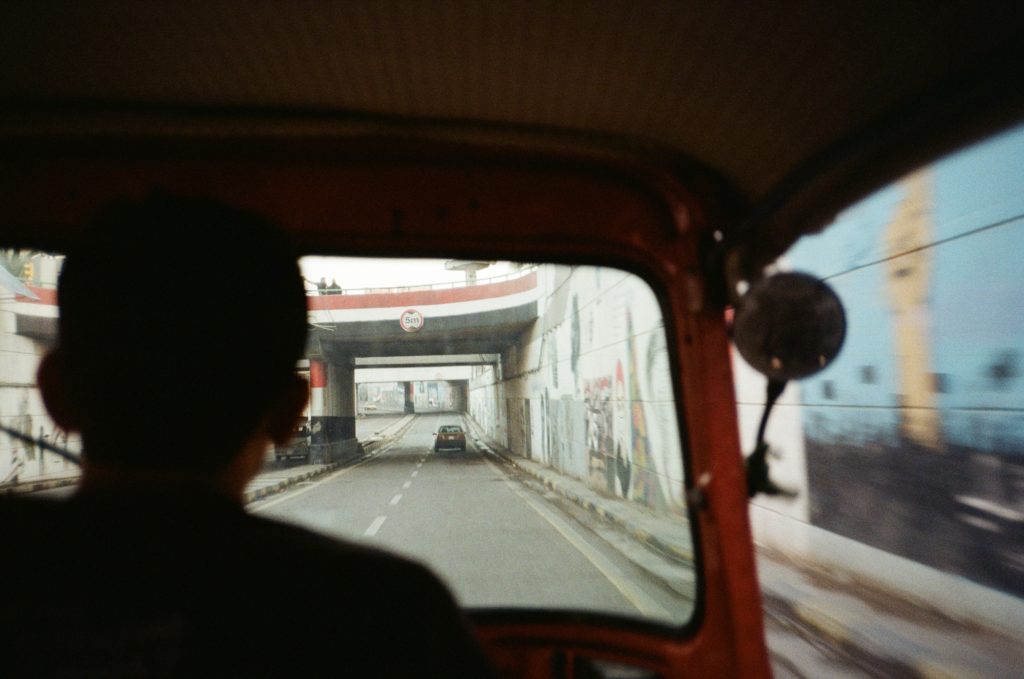
He told me this story between the fitting coincidence of selling a rifle to a religious man, evident from his thobe and henna-dyed hair, putting it in a black garbage bag for perfunctory discretion. Guns here are everywhere including the many automatics that, as war’s leftovers, can be found with very little effort even though they are officially banned for citizens.
Ali’s remaining anathema to America is not only personal, however. Baghdad has still not recovered from the aerial bombing of 2003. The blasting had strategically targeted infrastructure that supplied necessities, such as water and electricity, which the city still struggles to provide. And the culture will never recover from what followed after the invasion, including the rape of its library and the pillaging of the national museum, the latter of which had been the repository for Mesopotamian treasures. With Saddam removed from power, hordes of criminals were released from prisons by Americans under the banner of liberation. Chaos ensued. As one taxi driver expressed nonverbally but clearly: the death of Saddam, which the driver communicated by pulling an imaginary noose tied around his neck while sticking out his tongue and contorting his head, resulted in the death of the nation, which the driver then expressed by pointing out the window at all our surroundings and repeating “Iraq” while making the finger motions to gesture crumbling.
Critics will be quick to point out the mass killing during Saddam’s reign, maybe outnumbering anything that has since followed, with the added charge of ethnic cleansing. Even so, intervention here on humanitarian grounds has backfired repeatedly, if improving the lives of Iraqis was indeed the intention. Perhaps no one consulted Bismarck’s timeless words of advice: “The Great Powers must not get involved in the quarrels of these sheep-stealers.”
Of course, the Shi’a and Kurds feel differently, as the historic two anvils of the Ba’ath party’s hammer; ethnic resentment here draws fairly consistent friend-enemy distinctions. An exception are the men within the younger Sunni milieu who see Saddam quite unfavourably, though many of them make such ridiculous comparisons – to Hitler and to Stalin – that they have either internalized American neoconservative propaganda or they are simply trying to ingratiate themselves with a Western tourist.
But anyone who has lived long enough to compare the two Iraqs – the one that existed before Saddam’s dethroning and the one that came after – will admit (sometimes reluctantly) that his Ba’ath party brought stability. For many Iraqis, “democracy and freedom” were fanciful notions imposed by an illegitimate and unwelcome outside source, which were promised as a sleight of hand to remove opposition, install sock-puppet sycophants, and pilfer the country. Iraq has only witnessed worse and worse situations since Saddam’s fall. Ali now looks at the calendar hopelessly, “Today will be better than tomorrow, and tomorrow will be better than the day after,” though he also extends this cynicism to America, which within the next few decades he predicts “will come to a black end.”
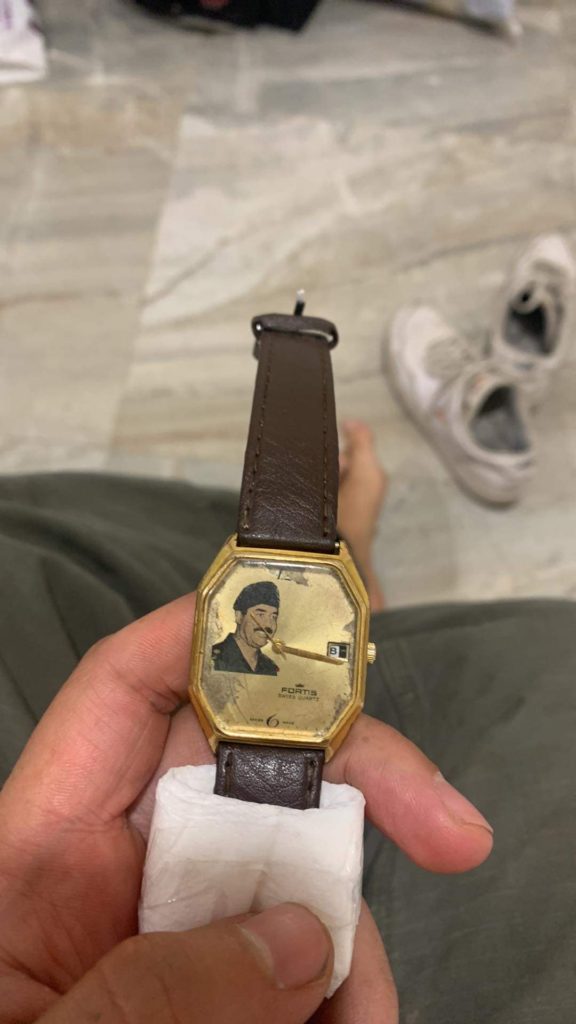
Cash and Carry
One thing to bring before entering Iraq is money. Banks hold cash in vaults and rarely dispense money through electronic means. Not one place took card, including very expensive hotels in Erbil, and I had to spend several hours hunting for ATMs. If your trip is short this can be an immense waste of time. The ATMs you do find often do not accept foreign cards. When the machines miraculously do work, there are absurd restrictions such as a paltry two-hundred-dollar per day limit.
I was checking out of my hotel in Baghdad, after one such frantic search, in this case to pay off my room, when I met a successful and educated businessman named Uday. We chatted rather casually until I mentioned my destination in the north, the second largest city of Iraq – Mosul. His admonitions were so severe and vivid that it would be an injustice to paraphrase them. I was warned of three groups in Mosul: Shi’a militias, Sunni Islamists, and nondenominational kidnappers. Uday told me: “If the Shi’a think you’re CIA, they will take your throat. The Islamists will just put a bullet in your head. And once the kidnappers find out you are a foreigner,” he paused to look me up and down like a woman, giving me a predatory wink and salacious grin, then resuming, “they will start thinking in numbers: one million…two million…three million,” smacking his lips between each increase in bounty. “And if your family can’t afford the ransom, they will sell you to another militia, another gang, so that you get passed around from here to there. None of your options are good: from A to Z you are dead.”
Uday said he would no longer go to Mosul, even as an Iraqi, although there are business opportunities to exploit. Some ISIS militants, who survived their defeat in 2017, are thought to have successfully mixed in within the larger population, shaving their beards and donning collared shirts, making them now indistinguishable from anyone else on the street. But as much as Uday entreated me to avoid Mosul, I was deaf to his caution. Between fortune favouring the bold and misfortune visiting the reckless, I found myself choosing adventure over regional wisdom.
Mosul or Bust
The airport in Mosul hasn’t accepted an international flight since 2014, when ISIS claimed it as their own. It is currently under reconstruction and it will again be operational in the next two years, or so they say. In construction, as a general rule, you should double the timeline to be realistic; by Iraqi standards, you should double it again when being charitable.
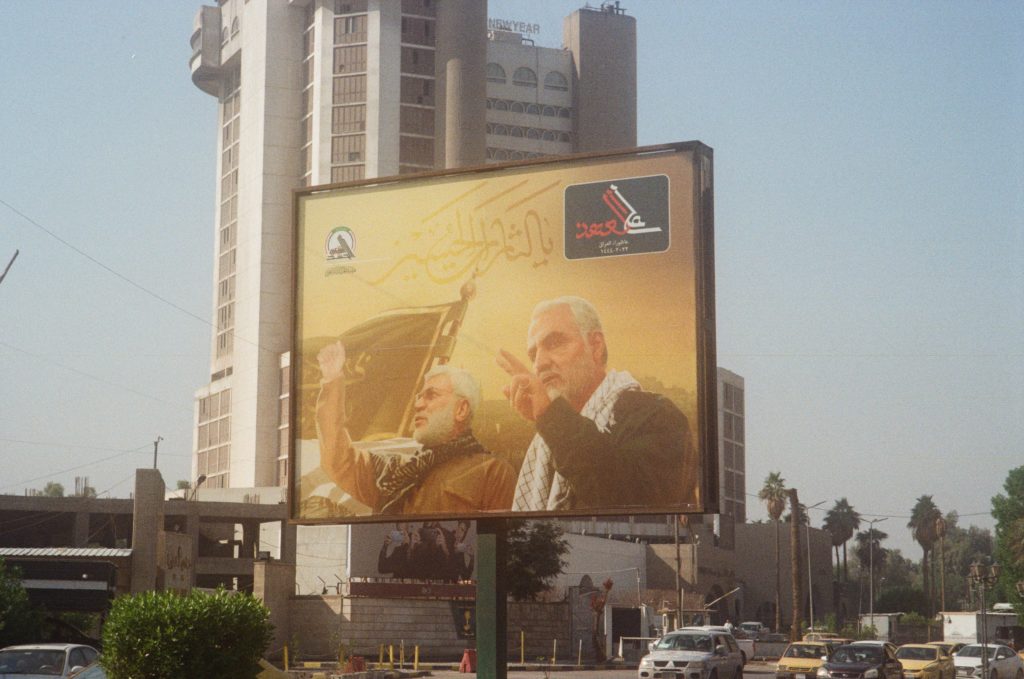
The only two cities that now welcome foreign flights are Erbil and Baghdad. The drive from Erbil to Mosul would only be two hours; however, the visa-on-arrival only applies within the Kurdistan Region of Iraq and elsewhere it is meaningless paper. To get to Mosul, you must therefore go from Baghdad. There are no buses or trains or domestic flights. Instead you must go to a place called Al Alawi Garage, which unlike the name suggests has nothing to do with mechanical repair or parking. It is really an open-air market for private transportation, where a litany of locations is being shouted by drivers eager to fill their seats. I sat in the front of a Dodge Charger (the car of choice for several private taxis), for only a few extra dollars, with three other men crammed in the back. The driver immediately accelerated to 110 mph as soon as we hit the two-lane highway, swerving to miss frequent pot holes, and narrowly avoiding the dump trucks that were headed in the opposite direction but straddling “our” lane. Every near miss resulted in a one-sided shouting match between the backseat passengers and the driver, who was often too busy texting to yell back.
Highway 1 does not have the exciting reputation of Highway 80, the “Highway of Death,” though they intersect at the northern tip of Safwan, right above the Iraq-Kuwait border. The iconic photography of incinerated cars during the Gulf War helped give Highway 80 its nickname, although there were enough completely scorched cars off to the side of Highway 1 that it didn’t exactly suggest “Highway of The Living” either. Highway 1 hugs the banks of the Tigris River on the east, all the way to Mosul, and commences from Baghdad with the Euphrates River to the west. These are two waterways that in Genesis are said to have risen out of Eden. But the biblical allusions to Paradise remain in scripture. Everywhere along the road (and throughout the country for that matter) there is garbage. In towns, piles are set aflame and the black plumes can be seen from miles away in the flat desert. It is disgusting and haunting. At speed bumps – inexplicably placed everywhere on the motorway – there are wailing widows standing between the passing cars which have slowed down to a near stop. Shrouded in diesel fumes, the women in black niqabs could be observed motionless, with their arms extended out to both sides, ready to receive charity. They gave the appearance of cormorants stretching out their ink-coloured wings.
Between Baghdad and Mosul, I counted nine checkpoints. These were foreshadowed by official billboards displaying Qasam Soleimani and Abu Mahdi al-Muhandis, both of whom were killed by US airstrikes, and under which it was sometimes written, in Arabic as well as in English (perhaps directed at Americans, as a threat): “We will not forget the blood of our martyrs.” A tank occasionally flanked the side of these inspection sites, and there were always Toyota Hillux technicals – improvised trucks with belt-fed, machine-gun turrets mounted in the pickup beds. The passport military officers were as perplexed as my friends back at home:
“Why are you in Iraq?” they asked.
“I am here to re-raise the black flag and declare myself the new Caliph, obviously,” is the joke that went through my head every time.
“I am here for tourism…” I said in honesty, “…and for the delicious food” I said as a lie.
That would be it. No other questions. No thorough search (thankfully, because of my illicit watch). Just an inquiry made as to why a tourist chose their country. Then I was free to continue until the next checkpoint where the same scripted, poor attempt at security took place. Even then it all seemed overkill, until we passed the city of Tikrit, which is about midway to Mosul, and is incidentally the birthplace of Saddam Hussein. There began a butchered scene of entire villages studded with bullet holes, where soiled children rummaged through wet refuse in search of food and whatever else. It was a nightmarish vision, a combination – of ruins, filth, destitution, suspicious faces, veiled women shrieking at packs of deformed children – that all concentrated before the backdrop of pristine desert and the setting sun.
The American Mind presents a range of perspectives. Views are writers’ own and do not necessarily represent those of The Claremont Institute.
The American Mind is a publication of the Claremont Institute, a non-profit 501(c)(3) organization, dedicated to restoring the principles of the American Founding to their rightful, preeminent authority in our national life. Interested in supporting our work? Gifts to the Claremont Institute are tax-deductible.
We will no longer go abroad in search of monsters to destroy.
U.S. foreign policy leaders have become addicted to outsourcing atrocities.

